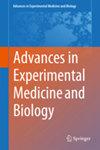脂质代谢与碳水化合物代谢的关系。
4区 医学
Q2 Biochemistry, Genetics and Molecular Biology
引用次数: 0
摘要
碳水化合物和脂类组成了一个复杂的新陈代谢网络,对维持体内平衡至关重要。在昆虫和大多数后生动物中,食物中的碳水化合物以单糖的形式被吸收,即使浓度相对较低,过量的单糖也会产生毒性。为了应对这种毒性,单糖被储存为糖原或中性脂质,后者构成了一种准无限能量储存。这些贮存物质在能量需求时的分解取决于昆虫的种类和几个生理参数。在本章中,我们将回顾昆虫利用碳水化合物和脂类之间的多种代谢途径和策略来应对营养供应、食物匮乏或生理活动。本文章由计算机程序翻译,如有差异,请以英文原文为准。
Lipid Metabolism in Relation to Carbohydrate Metabolism.
Carbohydrates and lipids integrate into a complex metabolic network that is essential to maintain homeostasis. In insects, as in most metazoans, dietary carbohydrates are taken up as monosaccharides whose excess is toxic, even at relatively low concentrations. To cope with this toxicity, monosaccharides are stored either as glycogen or neutral lipids, the latter constituting a quasi-unlimited energy store. Breakdown of these stores in response to energy demand depends on insect species and on several physiological parameters. In this chapter, we review the multiple metabolic pathways and strategies linking carbohydrates and lipids that insects utilize to respond to nutrient availability, food scarcity or physiological activities.
求助全文
通过发布文献求助,成功后即可免费获取论文全文。
去求助
来源期刊

Advances in experimental medicine and biology
医学-医学:研究与实验
CiteScore
5.90
自引率
0.00%
发文量
465
审稿时长
2-4 weeks
期刊介绍:
Advances in Experimental Medicine and Biology provides a platform for scientific contributions in the main disciplines of the biomedicine and the life sciences. This series publishes thematic volumes on contemporary research in the areas of microbiology, immunology, neurosciences, biochemistry, biomedical engineering, genetics, physiology, and cancer research. Covering emerging topics and techniques in basic and clinical science, it brings together clinicians and researchers from various fields.
 求助内容:
求助内容: 应助结果提醒方式:
应助结果提醒方式:


